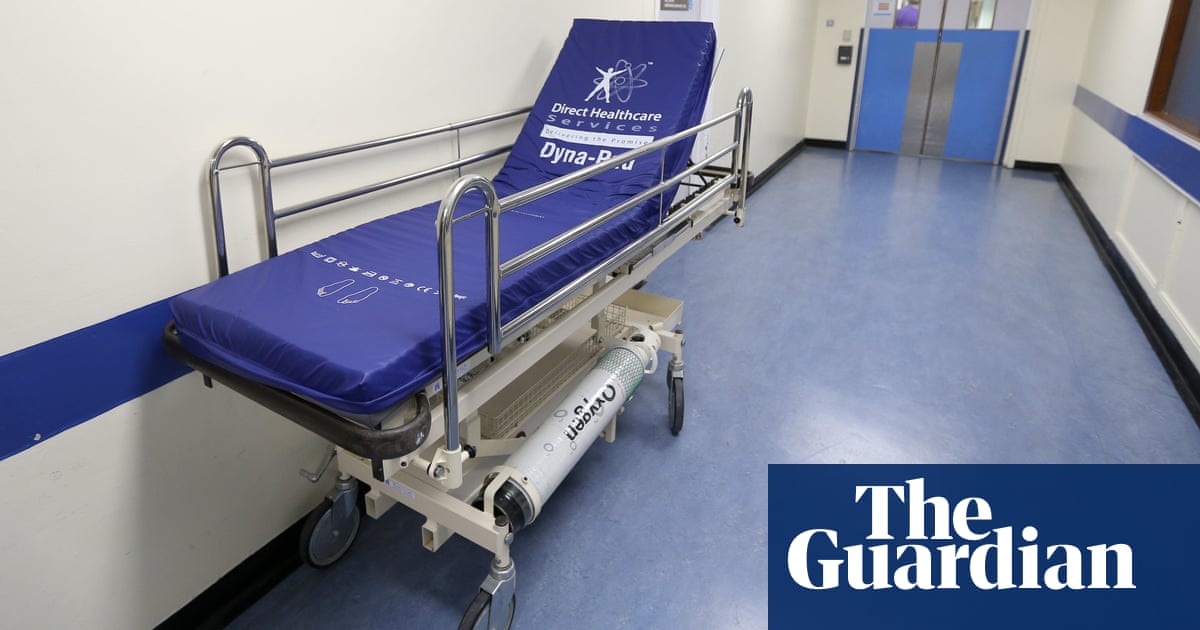An senior man was left incapable to ingest after ready over 2 days in A&E with out being supplied regular medication, and handed away 4 weeks in a while.
In a “shocking” occasion that has really elevated recent issues over the state of instant NHS therapy, the 85-year-old was despatched out to a healthcare facility emergency scenario division after an everyday session. Amid enormous hold-ups, his A&E delay entered into a third day, with the vast majority of it invested in a mattress within the passage.
He had Parkinson’s situation and referred to as for treatment at completely different intervals to handle his indicators and signs. During his time in A&E, the man must have obtained 18 dosages but 7 weren’t supplied and three had been supplied late, based on a report from the Health Services Safety Investigations Body (HSSIB).
The report, which doesn’t name the person or well being heart, highlights precisely how the man was advisable to go to A&E after struggling neck and again ache adhering to a loss in the home the day beforehand.
After 52 hours in A&E, he was lastly confessed to a ward the place his Parkinson’s indicators and signs scrubby and he shed the capability to ingest, the HSSIB claimed.
He handed away 4 weeks in a while, with the explanations of fatality detailed on the fatality certification as an excessive higher physique an infection, Parkinson’s and frailty of outdated age.
The HSSIB report highlights precisely how the man invested the vast majority of his time in A&E on a mattress in a hallway because of want on options. Corridor therapy can set off points for emergency scenario staff since there are “limited opportunities to store medication brought from home”, the writers claimed.
They highlighted precisely how there was no characteristic to immediately sharp staff that he have to have obtained time-critical medication. And staff had been unable to examine prescription information with the person’s common practitioner approach or Parkinson’s specialised group past functioning hours.
A&E staff moreover received inconsistent information relating to the dose of drugs referred to as for from the person’s doc and his boy. Staff took the overall practitioner information “as the most accurate record, but the information it contained was incorrect”.
Investigators situated there have been “no defined roles or responsibilities in the emergency department to ensure patients who required time-critical medications were identified, and medications prescribed, as soon as possible”.
The HSSIB cautioned that “patients who need medications can suffer harm if these are not provided” because it contacted wellness our bodies to make sure they’re sticking to expert requirements on time-sensitive medicines for individuals.
The most present effectivity info for the NHS in England reveals that 49,592 people had to wait more than 12 hours in A&E divisions in October from a option to confess to actually being confessed, the third biggest month-to-month quantity contemplating that equal paperwork began in 2010.
Dr Adrian Boyle, the top of state of the Royal College of Emergency Medicine, claimed the occasion was gorgeous and unlucky.
“[This] should serve as a call to action for all emergency department clinicians. No patient who enters an emergency department should fear their health will be put at risk because they are unable to access their regular prescription when they need it,” he claimed.
“Asking sufferers in the event that they take any time-critical treatment, and when their subsequent dose is due, needs to be one of many questions each clinician asks.
“This simple inquiry becomes increasingly pertinent given the backdrop of the extremely long A&E stays more and more people are having to endure. In this tragic case – a shocking 52 hours.”
Deinniol Owens, the alternative supervisor of examinations on the HSSIB claimed: “When sufferers are within the emergency division it’s essential that, alongside any emergency therapy wanted, treatment they require for different situations is prioritised.
“The case we examined throughout this investigation was a sobering instance – if sufferers don’t obtain treatment for his or her Parkinson’s it will possibly make them significantly unwell, and doses not being given on time will increase the chance of hurt and reduces the effectiveness of the treatment.
“It is distressing for sufferers and their households, and on this case the household felt they weren’t all the time listened to regardless that they communicated his wants and emphasised how necessary the right timing of the dosage was.
“Our investigation makes quite a few necessary findings in relation to how time-critical medicines are thought of in emergency departments.
“We are sharing this at a national level to prompt providers to look at how they administer critical medication, in a busy and challenging emergency environment and how they ensure patients receive medication in a timely and safe way.”

